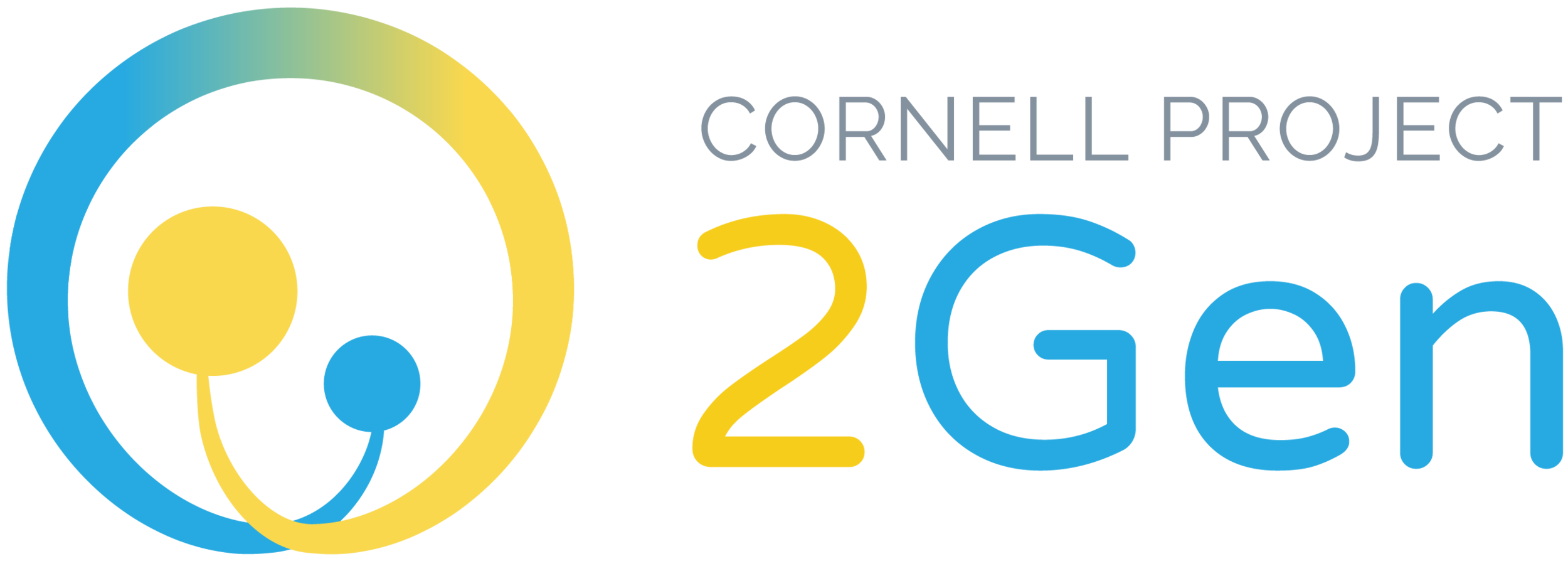Cornell Project 2Gen in Albany 2018: Supporting Vulnerable Families
Cornell researchers with New York State legislators in Albany
By Stephen D'Angelo for the College of Human Ecology
Cornell Project 2Gen held a daylong event in Albany on April 24th, bringing together faculty, staff, and students to share their research with state legislators. Participants engaged in nonpartisan, open dialogue about the opioid epidemic, the state of infant care, and improving Medicaid for vulnerable New York families.
BCTR Postdoctoral Fellow Elizabeth Day, who coordinated the event, said helping vulnerable children requires thinking about the full context of their lives. “There are so many layers of environments that children exist in. It’s important to support them in all of those layers, and that means supporting the people who live in those layers with them.”
Day’s experience as graduate researcher and a fellow in Senator Kirsten Gillibrand’s office gave her an inside perspective on how difficult it can be for legislators to get the information they need.
“Legislators need to be informed on a million different things. A researcher can maintain a much narrower focus and scan the entire research literature in a way legislators can’t. Researchers need to reach out and say: I’m studying this, here is my perspective as an expert.”
At the same time, Day explained, legislators tend to be skeptical of researchers who are advocates. “There is a fine line for legislators who want information and perspectives on what can be done, but don’t want to be told: here’s the one solution that will work.”
Cornell Project 2Gen Co-Director and Associate Professor of Policy Analysis and Management Laura Tach presented research on the two-generation impact of the opioid epidemic. Tach said it was important for Cornell Project 2Gen researchers to differentiate their goal--open dialogue--from that of groups or constituents who approach legislators with a specific “ask,” such as for money or to push a particular agenda.
“Our event aimed to establish Cornell researchers as a source of independent, nonpartisan research and evidence about vulnerable families in the state. Our goal was not only to share information about the cutting-edge research happening at Cornell, but also to learn from legislators about the important issues affecting families and children in their districts.”
Cornell Institute for Public Affairs graduate student Nora Smithhisler ’19 said she was surprised by how willing the legislators were to work together. “We have a strong division between right-leaning and left-leaning at the moment, but with so much of the work we presented, everyone was on board. That was heartening to see that there is still teamwork across the aisle in politics.”
Although the inaugural event introduced legislators to Cornell’s role as a hub of 2Gen research and policy analysis, Day hopes to make it an annual event with an expanded network of 2Gen researchers statewide. “We want to be a resource for policymakers and if we don’t have researchers working on the area they need information in, we can connect them with researchers who are.”





